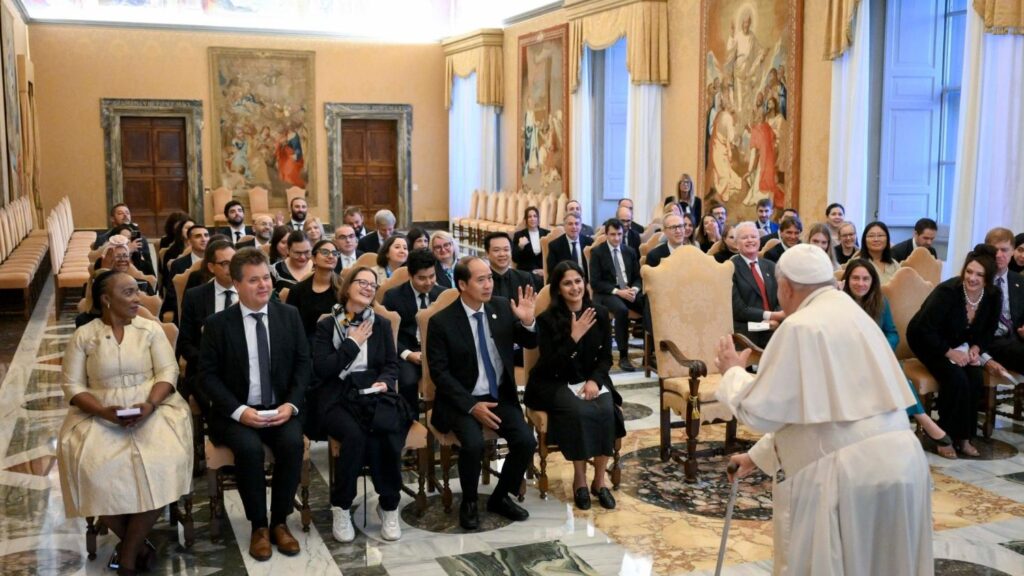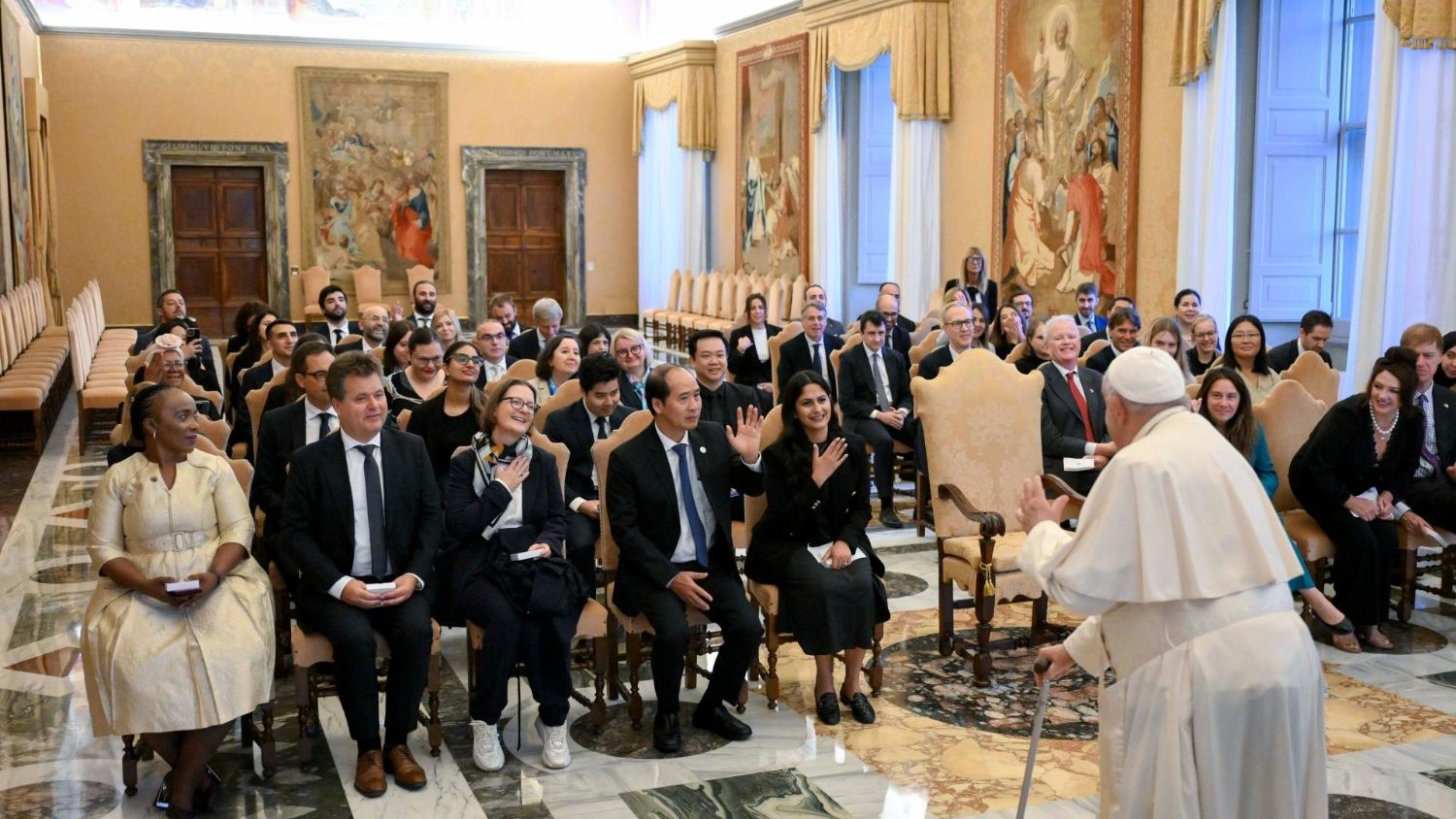
Pope Francis urges global leaders at the G7 on Inclusion and Disability to prioritise the dignity, inclusion, and empowerment of persons with disabilities, emphasising justice, universal accessibility, and solidarity.
Addressing Ministers of the G7 Inclusion and Disability Summit, in the Vatican on 17 October, Pope Francis expressed deep gratitude for their commitment to building a more just and inclusive world.
The audience took place after a three-day Summit in Italy’s central Umbria region that concluded on Wednesday with the signing of the Solfagnano Charter. This text expresses a strong commitment to the integration of people with disabilities, setting out eight priorities to ensure their full participation in social, political and economic life.
These principles, the Pope said, not only resonate deeply with the Church’s vision of human dignity but are also critical to shaping a society that values every individual as part of the universal human family.
He then shared an anecdote: “Once, talking about people with disabilities, someone said to me: ‘Be careful, because all of us have some.’ All of us. It’s true.”
A global priority
In his address, Pope Francis urged the international community to prioritise the inclusion of people with disabilities, reminding all those present that their equal dignity must be universally acknowledged.
“Creating an inclusive world,” he noted, “requires not only adapting structures but also changing minds”, before calling for universal accessibility, ensuring that all physical, social, cultural, and religious barriers are removed so that individuals can develop their talents and contribute to the common good, regardless of their stage in life.
For justice
Pope Francis then went on to stress that providing services and facilities for people with disabilities is not just an act of social assistance, but a matter of justice. All nations, he said, bear the responsibility to create inclusive communities that promote the integral development of every person. He reiterated the vital importance of offering opportunities for dignified employment and participation in cultural and sporting events, warning that excluding someone from these areas is “a grave form of discrimination.”
Technology as a tool
Pope Francis also highlighted the role of technology in advancing inclusion, stressing that it should be made accessible to all. However, he warned that technology must be used wisely, to bridge inequalities rather than deepen them. “Technology must be directed towards the common good,” he said, “and placed at the service of a culture of encounter and solidarity.”
Times of crisis
Bringing his address to a close, Pope Francis shed light on the urgent humanitarian crises that disproportionately affect the most vulnerable, including persons with disabilities. He emphasised the need for a comprehensive system of prevention and emergency response, tailored to the specific needs of people with disabilities, to ensure that no one is left behind in times of conflict or natural disaster.
Finally, reflecting on the spirit of Saint Francis of Assisi, Pope Francis encouraged the G7 participants to continue their work with a sense of hope and commitment. “Together”, he concluded, we can build a world in which the dignity of each person is fully recognised and respected.”
Source: vatican.va





